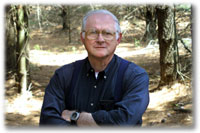Friday, June 07, 2019
Stonefield Historic Site
Interested in Wisconsin’s agricultural history? Do you enjoy looking at early farm implements? How about the fun of visiting a 1900 replica of a farming village, along with a 1901 farmstead. Yes? Well you are in luck, because in Southwestern Wisconsin a place called Stonefield has all of these things. It’s a Wisconsin Historic Site, one of several operated by the Wisconsin Historical Society.
Stonefield is just a short drive north of picturesque Cassville, one of Wisconsin’s several towns and cities tucked up against the mighty Mississippi River. Stonefield is about a two-hour drive from Madison, and only 37 miles north of Dubuque, Iowa.
The place is steeped in history as Nelson Dewey, Wisconsin’s first Governor, farmed some 2,000 acres here at one time. His beautiful Gothic Revival home is open for tours—it’s a part of Nelson Dewey State Park, which is across the road from Stonefield.
The State Agricultural Museum is located at Stonefield. Here you can see a McCormick Reaper, along with tools large and small that depict the state’s agricultural past. Also there are walls of historic photographs. One is of a group of men raking cranberries by hand. Something I did back in the fall of 1955.
Cross the covered bridge and find yourself in an early Wisconsin village, complete with a cheese factory, newspaper office, saloon, blacksmith shop, railroad depot, saw mill, bank, livery stable, a one-room school, barbershop and more. Visiting the farmstead, you’ll see a farm house, dairy barn, corn crib, chicken coop, and hog house.
What a great place to relive your childhood and to bring the kids and grandkids to show them some early Wisconsin history. Go to: https://stonefield.wisconsinhistory.org/ for more information.
THE OLD-TIMER SAYS: When we forget our histories, we forget who we are.
ANNOUNCEMENT: My “Telling Your Story” Writing Class at The Clearing in Door County is set for July 19, 9-4. Call 920-854-4880 if you are interested in attending. The class usually fills, so you may want to reserve a spot sooner than later.
UPCOMING EVENTS:
July 12, 6:00 p.m. Frank B. Koller, Memorial Library, 2 US-51, Manitowish Waters. Old Farm Country Cookbook, with co-author, Susan Apps-Bodilly.
BOOKS FOR SUMMER READING:
Want a book to read this summer? Here are two more of my novels for your consideration.
Each deals with a contemporary rural issue. Purchase from your local bookstore, or buy them from the Friends of the Patterson Memorial Library in Wild Rose—a fundraiser for them. Phone: 920-622-3835 for prices and ordering.
Patterson Memorial Library
500 Division Street
Wild Rose, WI 54984
barnard@wildroselibrary.
www.wildroselibrary.org
Cranberry Red
From Booklist:
In the fourth book in the Ames County series, Ben Wesley, an agricultural agent for the past two decades, is suddenly out of work when funding for his program is cut. He’s immediately offered a job with Osborne University, doing pretty much what he did before but charging people for his services. This makes him a little uncomfortable but not nearly as much as Cranberry Red, a new chemical developed by the university’s researchers that could have spectacular benefits for people with heart disease or Alzheimer’s. When it begins to appear that Cranberry Red has some pretty nasty side effects, Ben is faced with a difficult choice: keep his job and find a way to protect the community, or blow the lid off the secret and risk everything. Apps approaches his familiar themes (honor, the importance of community, the increasing threat to traditional farming) from a new angle, focusing on the issue of genetic modification and its impact on an entire way of life. As usual, he creates compelling characters and places them in a vividly realized setting. –David Pitt
Tamarack River Ghost
When journalist Josh Wittmore moves from the Illinois bureau of Farm Country News to the newspaper’s national office in Wisconsin, he encounters the biggest story of his young career—just as the paper’s finances may lead to its closure.
Josh’s big story is that a corporation that plans to establish an enormous hog farm has bought a lot of land along the Tamarack River in bucolic Ames County. Some of the local residents and officials are excited about the jobs and tax revenues that the big farm will bring, while others worry about truck traffic, porcine aromas, and manure runoff polluting the river. And how would the arrival of a large agribusiness affect life and traditions in this tightly knit rural community of family farmers? Josh strives to provide impartial agricultural reporting, even as his newspaper is replaced by a new Internet-only version owned by a former New York investment banker. And it seems that there may be another force in play: the vengeful ghost of a drowned logger who locals say haunts the valley of the Tamarack River.
Subscribe to:
Post Comments (Atom)


No comments:
Post a Comment